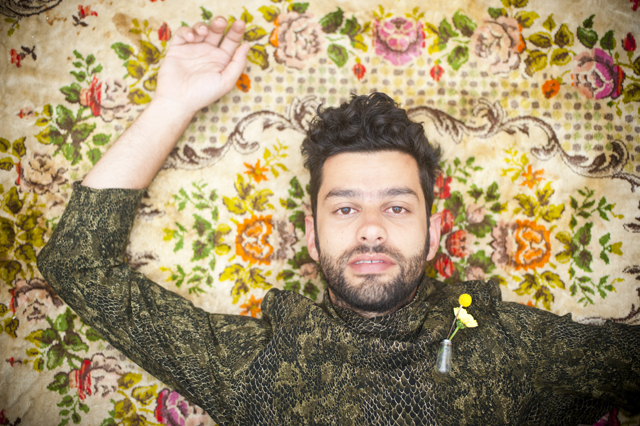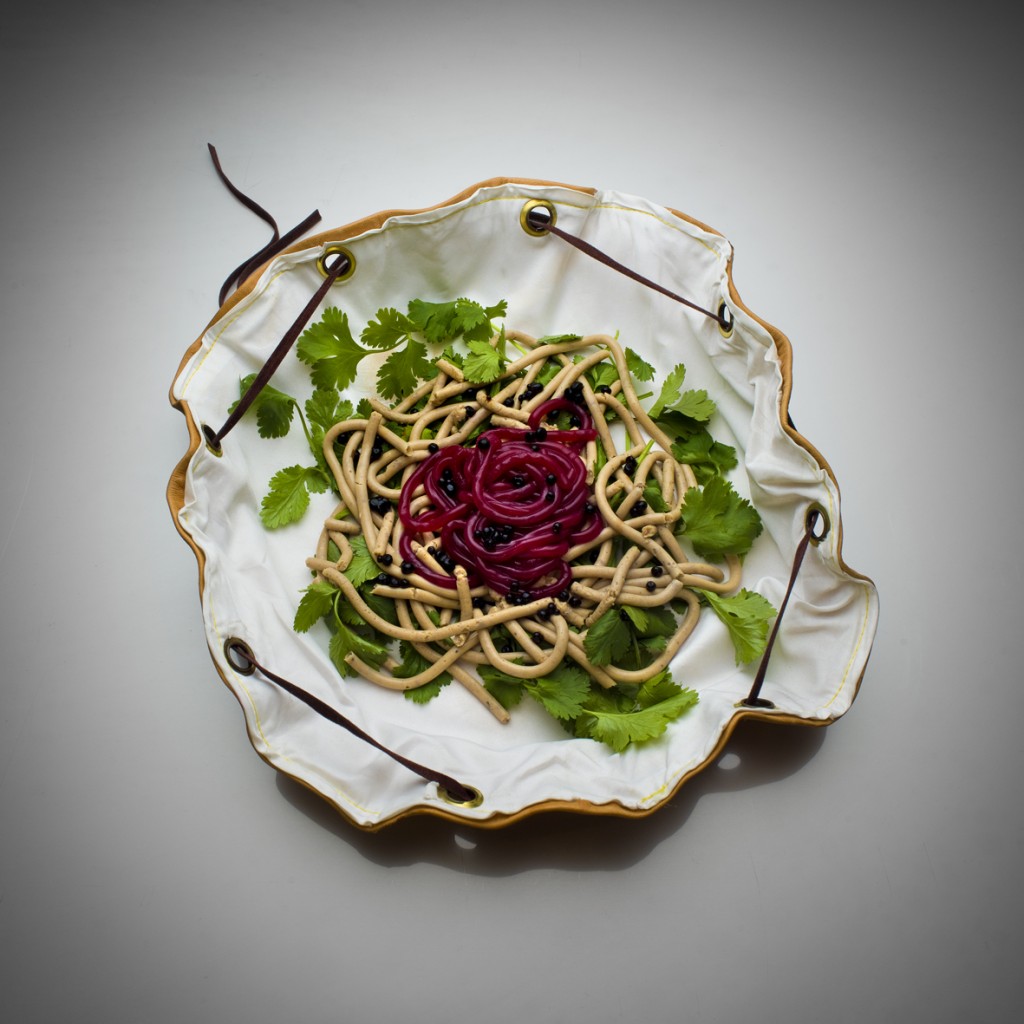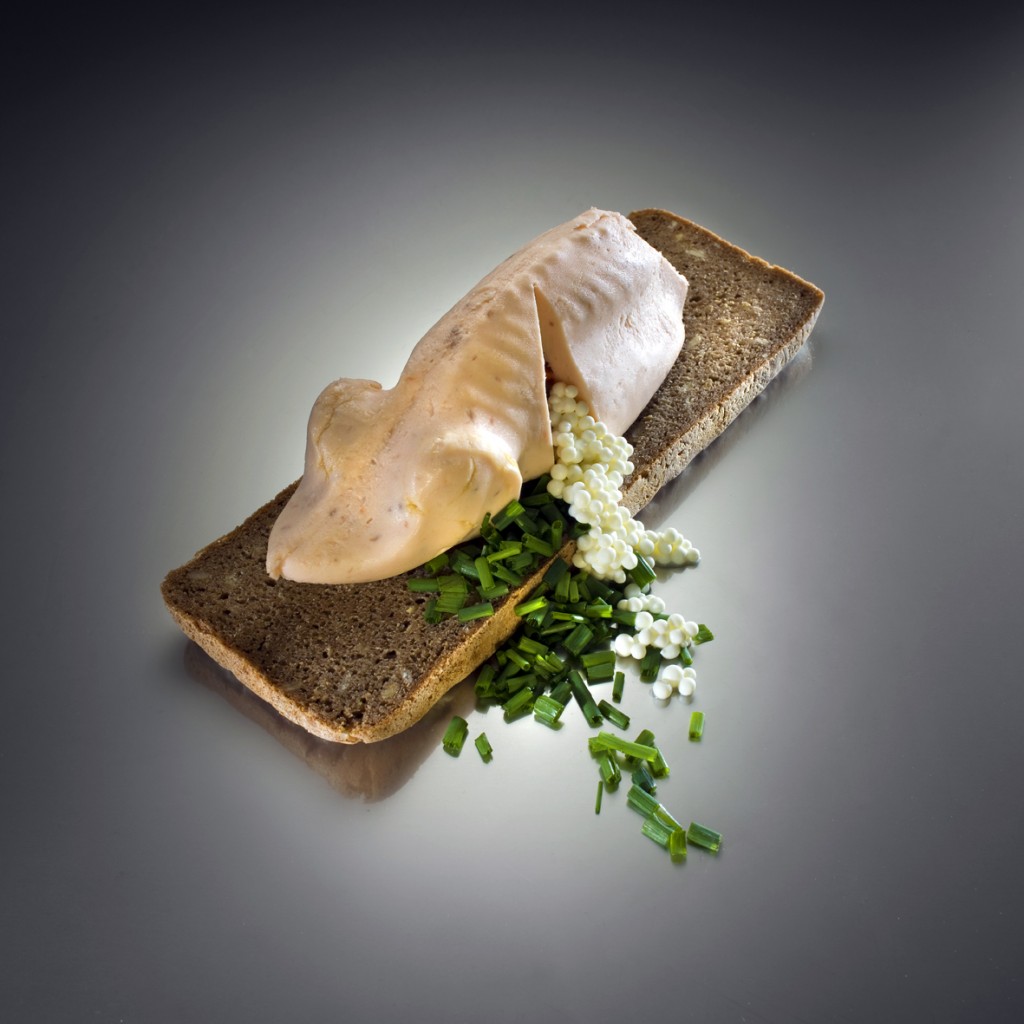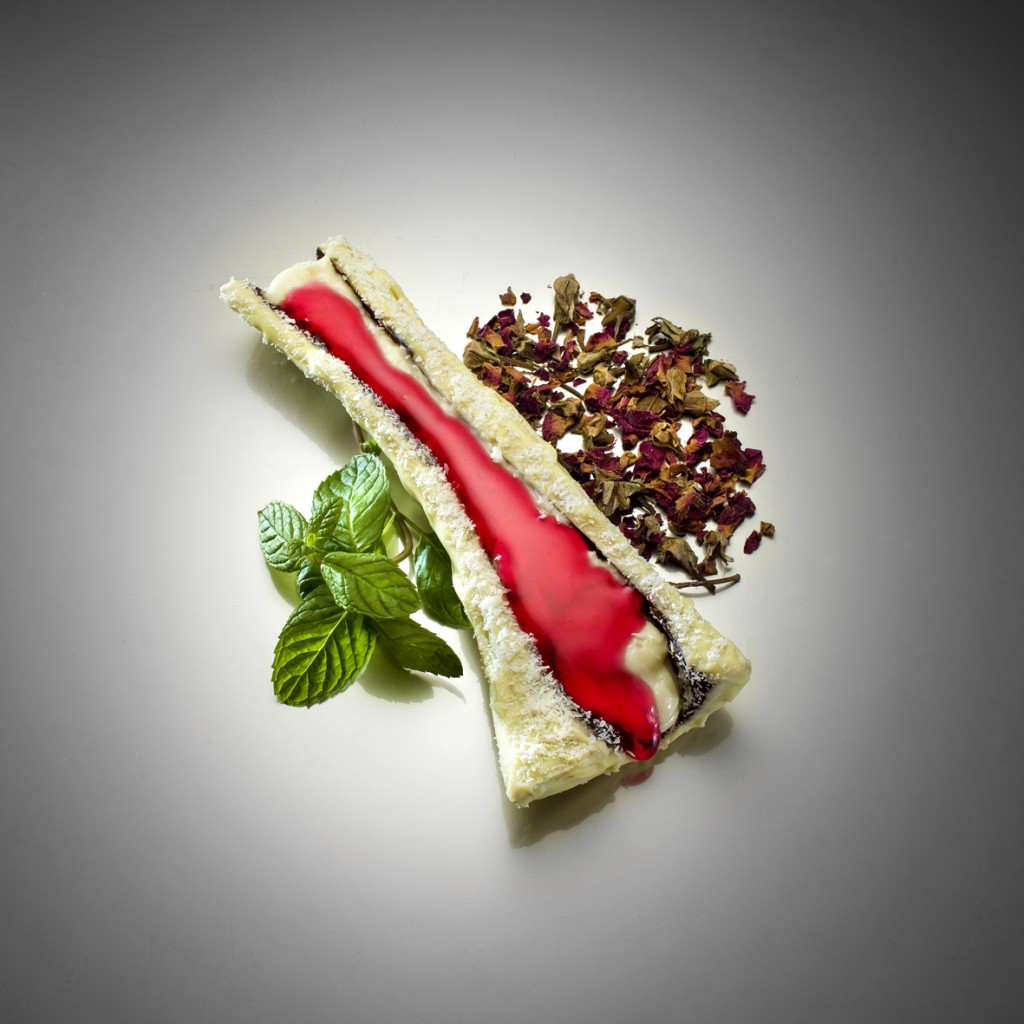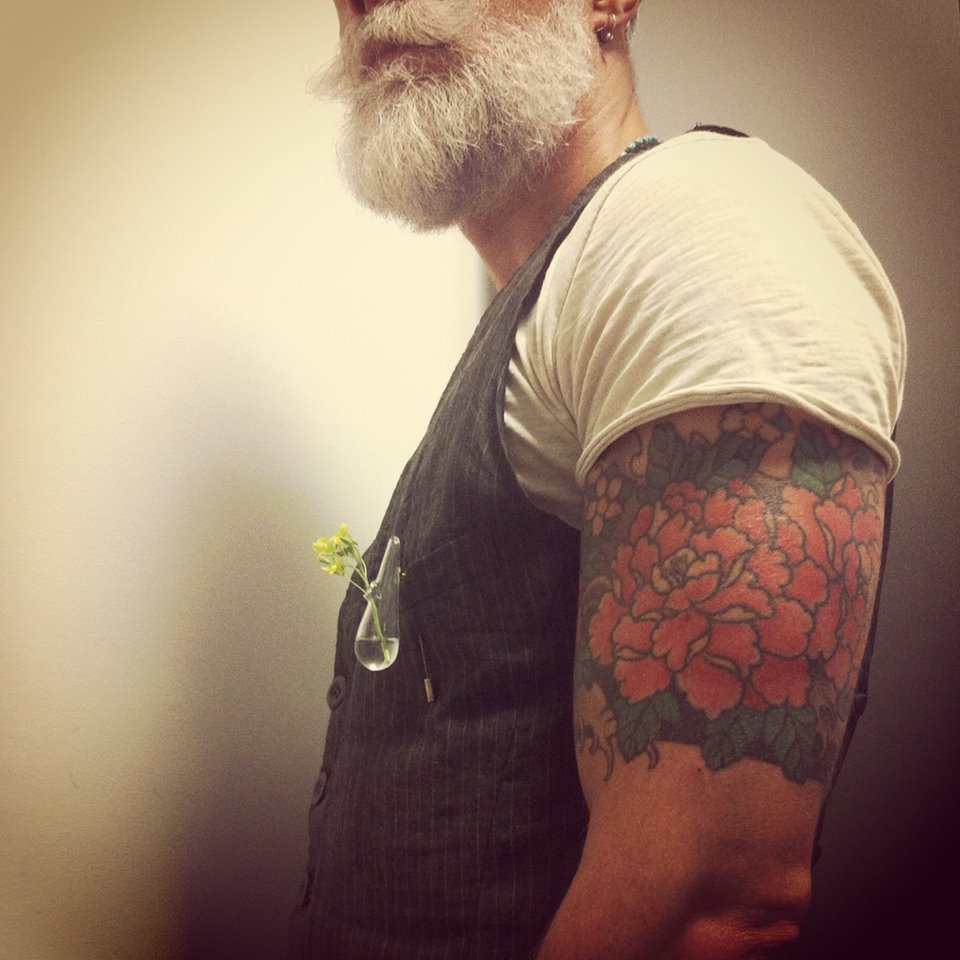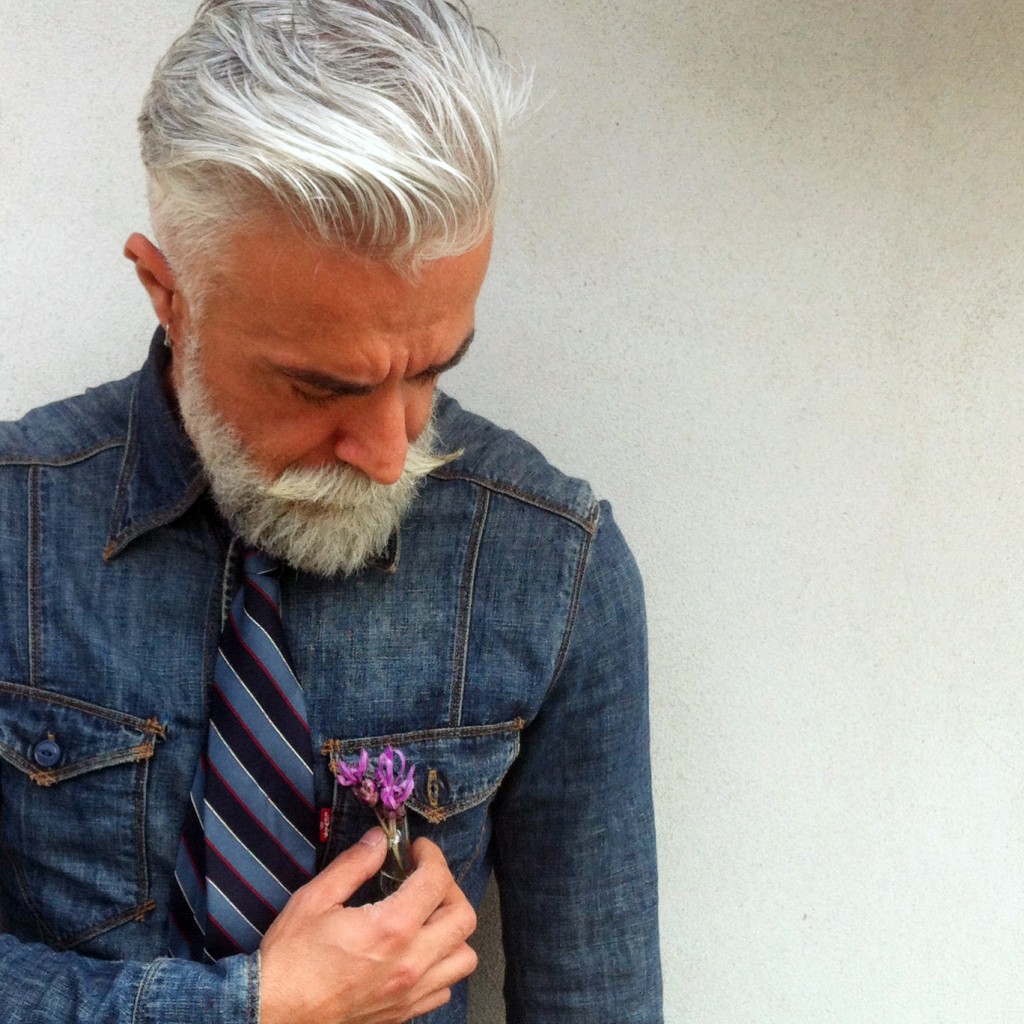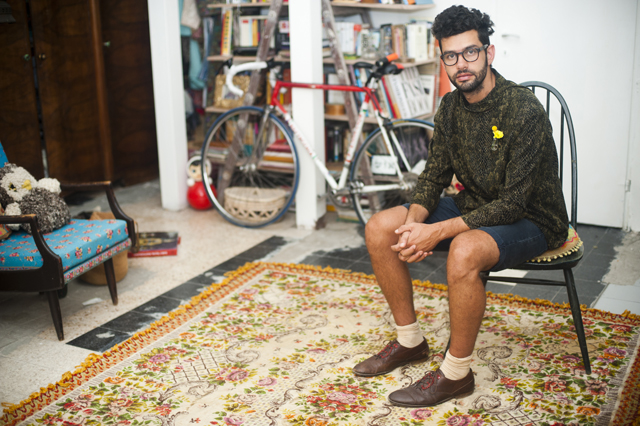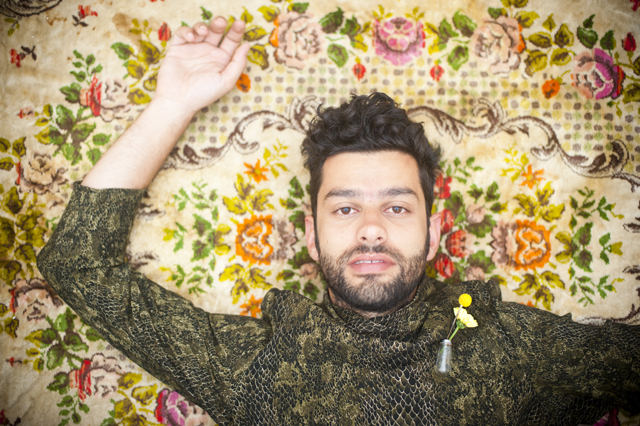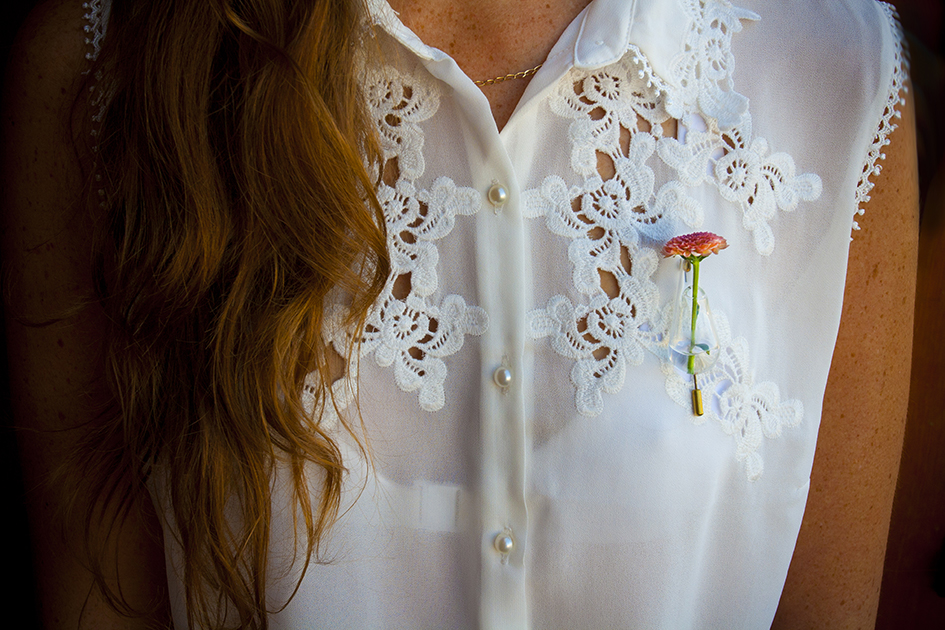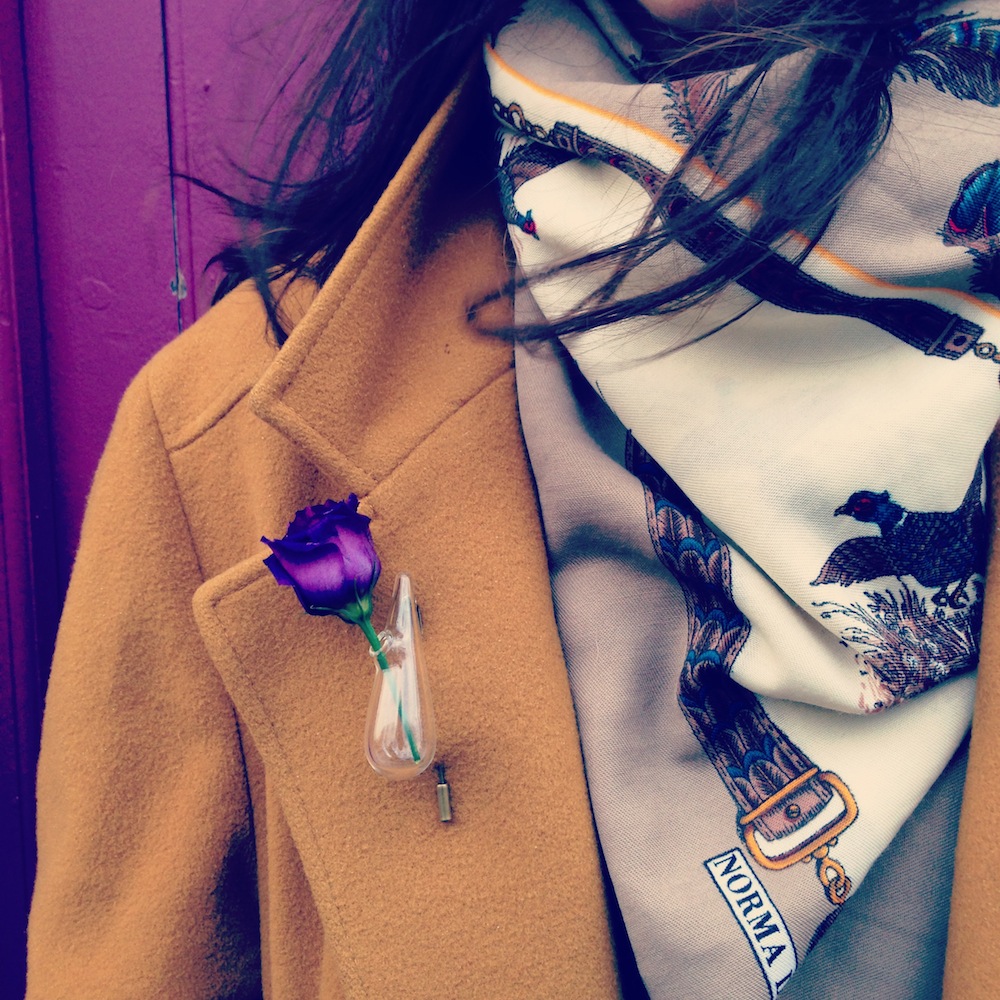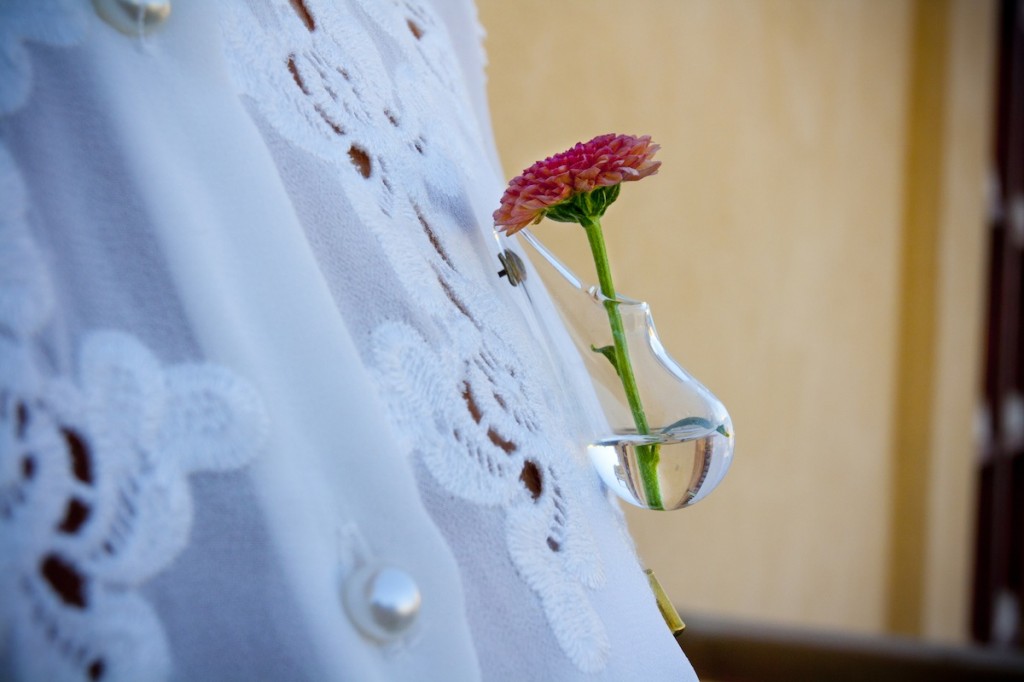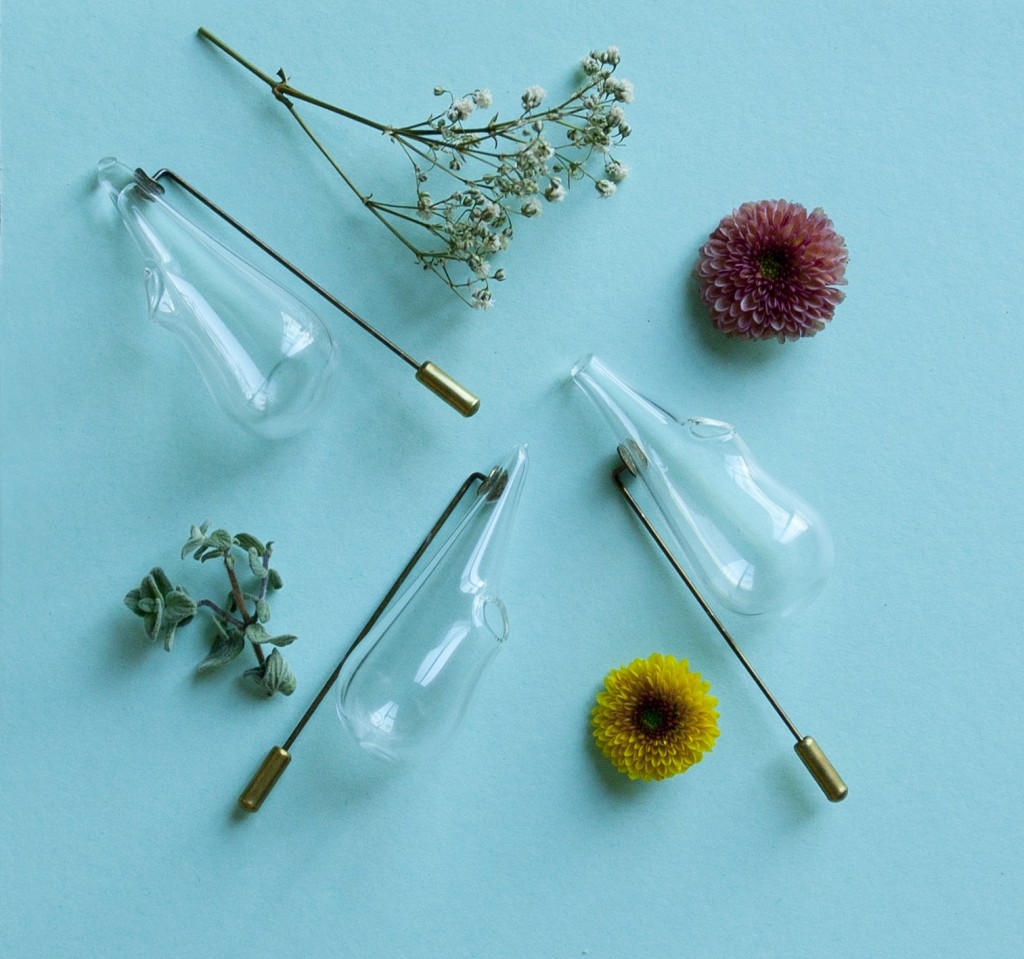Your story (biography) in 10 lines
Oh, I do not know how to start…! I was born in Rishon LeZion, only 15-20 minutes from Tel Aviv (Israel) in 1984 and come from a family where art is really strong. I think the first step I did in this peculiar world has been at the high school (the Telma Yalin School of Arts in Tel Aviv) where I attended the Fine Art course. I fall in love immediately and all my life is centred around this subject. Four years ago I started to study in Bezalel Academy of Arts and Design (Jerusalem) but this time in the Industrial Design department. At the beginning was very challenging because coming from an art world it is very hard for me to design a chair.
That was my very first impression. Now I can say that my art, also before, has been very connected with this form of creativity, involving much more users experience. Today I work very much in between design and art. This means drawing, painting and product design. I think that both the disciplines are around a story. Except for being a designer, I am a storyteller. When you’re telling a story you think about how to tell it, but you have to explore also what is interesting, what is less and how we behave around these issues.
After having done what every Israeli does (the military service), I started to travel, which affected a lot my way of being and thinking: Australia, New Zealand, Papa New Guinea, Vietnam, Cambodia, Burma, Thailand. Back to Israel, I’ve worked a bit and went to India, once returned I started my studies. Travelling has been deep research commissioned by myself.
Were your parents visual artists?
Yes. I think I got my artistic skills from my father. He is the one with the golden hands, he comes from a family where granpa was an artist of Franz Joseph (Austria), he made a lot of wood crafts, furniture and other stuff; my father is painting for his own sake but is working in the business of arts. He runs a gallery here in Israel called Gvanim that means variety.
How much do you work as a designer and how much as an artist/inventor?
I would love to say mostly as an artist that for me contains everything but I also feel this category of professional as a “big title”. Then, after this, there is the designer, the researcher…
It is hard to divide and can’t make a calculation in terms of daily work. I feel somehow as a scientist. As designers we learn a lot about materials but then we need to experiment. Where I live is the best place for this. Take for example my project s sense: I collaborated a lot with a very important research centre and they really opened up their doors for me. Innovation is in a way something we have in the DNA (and lots of start- ups are growing in our country), but as designers we focus on something that is really in need to be innovated with the aim to help the society – from the little big things to the biggest ones, as disabilities and so on.
Commissioned and non-commissioned creativity: what’s the relationship?
All is self-commissioned but in a way it turns in a commissioned work. Take for instance “blow dough”, my food design project presented at Jerusalem Design Week; it became a workshop in Kiev. Again, it is not commissioned but it is not something only going to be exhibited in a museum but it ends up to be a practice to experiment and to be taught. And then, my design works as Boutonnière is something that sells. From product design to art, and of course, the design and the making are always orientated on my side to make a life out of this.
Yes, I work also with some companies. I am currently designing projects for LagoDesign for the next Milano Design Week and I’ve worked for Keter, one of the largest companies of my country. And I created the Cloud Factory for a toy company, Spin Master via a design competition of my design school. This fulfils a dream I always had in my childhood: to be in the clouds. It is not yet in production due to some problems in gas shipping …While they are solving this, we are discussing another exciting project.
Which encounters do you normally have in your daily work routine? Please make a portrait of one of these
I tell you my typical day. I wake up, I drink my coffee and then read some news. The first part is only based on computer (mails, 3D), then after lunch time I go working with the materials. This is always, even if I have no assignments. But my days may vary a lot, I could be meeting clients or, on the contrary, being bringing my projects to the next levels. When I can, at noon, I go to the beach and swim for 20 minutes.
What your city (and the Israeli society) is giving to you and vice versa – given that you’re very young?
First of all, I worked a lot abroad (in Europe and beyond) and I feel that this is also something that I owe to my country. And people are always interested on what is going on here, not only about politics. What is my city and country giving to me? So much, ohh! Even the beach next to my house. I live five minutes from the beach, is the best place on the earth, I really like it and I like the Israeli aptitude, it gives me a lot. It is very open and warm here, people are super nice and friendly, very welcoming – especially in my area, Jaffa which is a mix between Arabic and Jewish people and it’s next to the flea market, perfect place for storytellers (i.e. where the products say a lot).
Describe a great happening you have had in recent time?
Actually I am happy to have been in Venice because all happened in one week (a recently opened private museum in town, Vitraria, took his project Boutonnière in its shop after a long negotiation project). And this often happens: changes and news happen all of a sudden in my life. Like the workshop I’m heading here in Kiev.
Are you afraid of what happens in Ukraine now?
Look, I come from Israel. When you read the news from the region, you should think it is the worst place in the world to be or that people are always running with the guns on the street. It is totally different from what happens! I’ve just asked to my hosts if there is a real danger and they said not that bad. So at the very end I am not the person who does not travel for this kind of reasons, if who is there tells me the truth.
Can you share your favourite cooking passion?
I do not have a great knowledge of cooking. My mum is the best cook ever.
The most interesting me is the relation we have with the food. How we eat and what we bring to our body, if we are really aware of doing so and what experience we have of the food. For instance I like very much to eat with the hands and without cutlery. And if I am not getting dirty I know that the food is not so good! It does not matter how much formal the environment is or where I am eating.
I like all the traditional food, whatever country it comes from. Even when in Italy I always searched for the small situation, the real trattoria and the typical produces. Even if I got poisoned in Venice by eating some small fish and this did not let me sleep for the whole night for a stomach ache! But also this is an experience!
What music and book(s) are you now?
Now I am listening – over the past two weeks! – the Australian Chet Faker, while the books I am reading now are connected to my research, they are not stories. They’re about food, traditional methods of cooking…
In which way do you try to live “slow”, if you like to do so, in a city as yours?
It is funny, I am not “slow”, I am constantly running from a place to another. And for the reason my job is not a very specific and standard activity, as for example a lawyer, I am constantly working. It is not a work for me, it is my passion: I can wake up in the middle of the night and work on an idea which has emerged or at the computer. But being always at work is hard and innovating things in particular is a very hard task. In a way I feel to live “slow”: not in my work schedule and neither in my timing but in the way of thinking. And I have the attitude of being easy-going, maybe this is not the same of being slow…
Which is a talent you have and the one you miss?
I would love to be a musician, I love music and I think it’s a great form of art. You don’t need an artistic soul to enjoy this kind of art, it’s part in our everyday life. For a musician is very easy to find a connection between their art and the daily life. Just imagine yourself driving a car, but in the moment you park your car there is a great song playing in the radio and you stay until it finishes. Such a great moment that brings art to our daily life. What about visual arts? That’s why I am so intrigued by using food design, it is also a viable way where arts meet daily life.
I do not think I am the best drawer or the best artist or the best designer: oh my God, there are so many talented people around me! The most important thing that I have is patience.
What have you learnt from life until now?
What I like is to learn from people around me, doesn’t matter at which position of the society they belong. Actually I shall say I prefer the ones teaching me through their life experiences.
